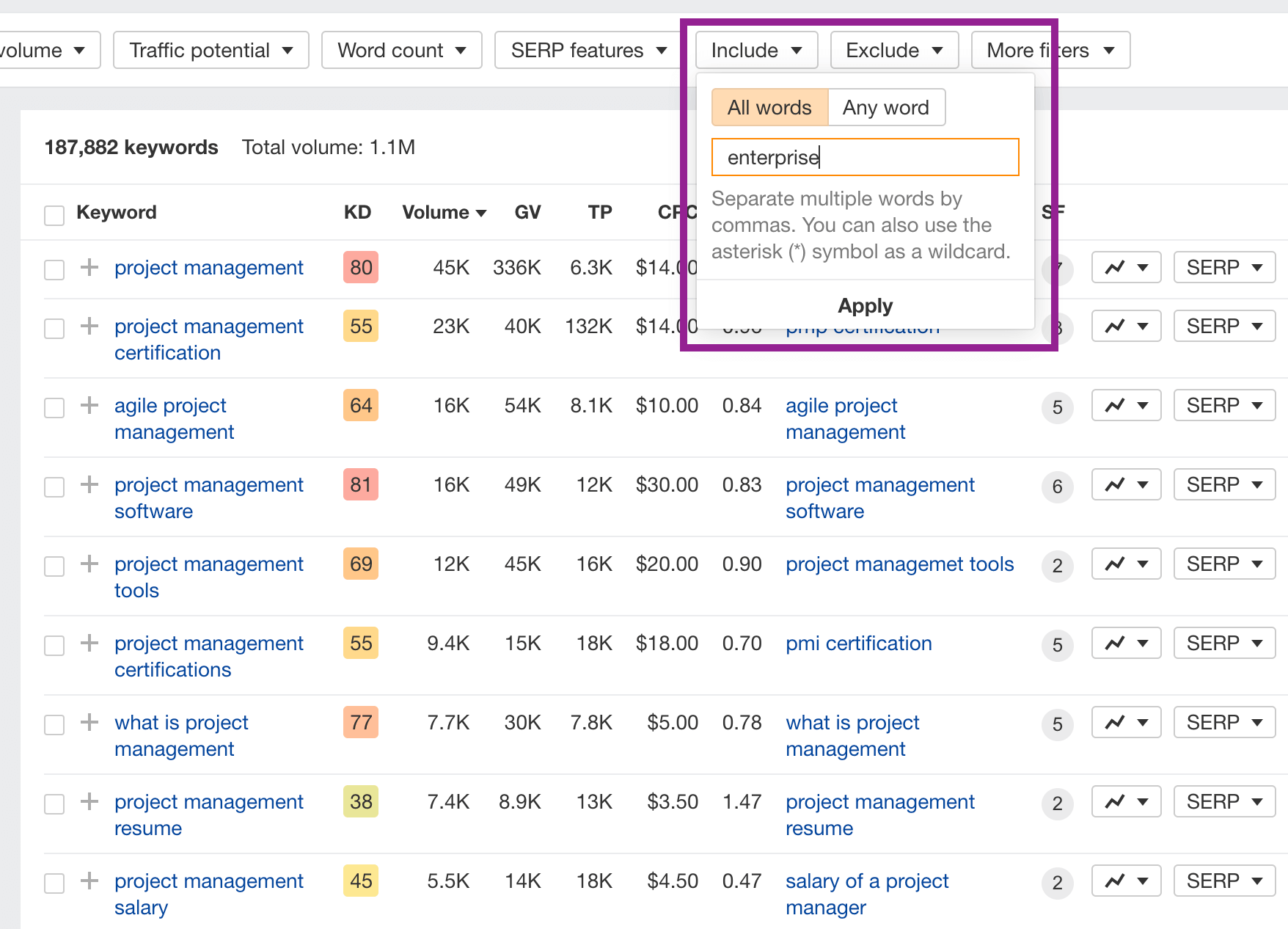To find keywords for SEO, use tools like Google Keyword Planner and conduct competitor analysis. Analyze search intent and trends for optimal selection.
Mastering the art of keyword discovery is essential for any digital marketer or content creator aiming to enhance their online visibility. Crafting content that ranks well on search engines begins with understanding the right keywords to target. This involves a strategic approach, blending analytical tools and creative thinking to uncover terms your audience is actively searching for.
Identifying these keywords isn’t just about guessing what people might type into a search bar; it’s about diving deep into data, recognizing patterns, and aligning your content with the queries that matter most. By prioritizing keywords that are relevant, competitive, and in line with your content goals, you set the foundation for SEO success.
Introduction To Seo Keywords
Introduction to SEO Keywords guides your content’s success. Keywords act like beacons, guiding search engines to your site. They help your content show up in search results. Understanding and finding the right keywords is crucial.
Importance Of Keywords In Seo
Keywords are the foundation of SEO. They link user queries to relevant content. Without the right keywords, your content might never reach its intended audience. Keywords boost your visibility and ranking on search engine results pages (SERPs).
- Boost Visibility: Correct keywords improve your site’s visibility.
- Drive Traffic: They attract more visitors to your website.
- Improve Ranking: Help your content rank higher in search results.
- Enhance Engagement: Engage users by matching their search intent.
Evolution Of Keyword Research
Keyword research has changed a lot. It’s not just about finding words with high search volume. It’s about understanding user intent. We must find what users are really looking for.
| Before | Now |
|---|---|
| Focus on single keywords | Focus on topic clusters |
| High search volume is key | User intent and relevance matter more |
| Keyword stuffing | Quality content around keywords |
We now focus on long-tail keywords. These are phrases that are more specific and usually longer than more commonly used keywords. Long-tail keywords get less search traffic, but they have a higher conversion value. They allow you to target users looking for specific content.

Credit: www.semrush.com
Starting With Keyword Basics
Mastering SEO starts with understanding keywords. Keywords connect user queries to your content. They are the foundation of any SEO strategy. Let’s dive into the basics of finding the right keywords for SEO.
What Are Seo Keywords?
SEO keywords are words or phrases that describe content. They are the terms people enter into search engines. Your goal is to rank high for these terms. This brings more visitors to your site.
Types Of Keywords: Short-tail Vs Long-tail
Different keywords serve different purposes. Knowing which type to use is crucial for SEO success.
Short-tail Keywords
- One to three words long
- General and broad
- High search volume
- More competition
Long-tail Keywords
- More than three words
- Specific and detailed
- Lower search volume
- Less competition
Short-tail keywords are broad. They often have high search volumes. But, they come with stiff competition. Long-tail keywords are more specific. They tend to draw in less traffic. Yet, they have a higher chance to convert.
Identifying Your Target Audience
Identifying Your Target Audience is a crucial first step in finding the right keywords for SEO. Without knowing who you want to reach, you can’t effectively tailor your content or choose keywords that resonate with your intended users. Dive into the world of your audience to unlock the potential of your SEO strategy.
Understanding Search Intent
Search intent tells us the purpose behind a search query. It’s critical to align your keywords with the right intent to meet user needs. There are four main types of search intent:
- Informational: Users look for answers or information.
- Navigational: Users search for a specific website or page.
- Transactional: Users intend to make a purchase or complete an action.
- Commercial: Users consider a purchase and want to compare options.
Align keywords with the right search intent to connect with your audience.
Analyzing Audience Demographics
Understanding who your audience is can guide your keyword research. Consider these aspects:
| Demographic | Questions to Ask | SEO Implications |
|---|---|---|
| Age | What age group does my content target? | Choose keywords popular within this age range. |
| Location | Where is my audience located? | Include location-based keywords. |
| Interests | What interests my audience? | Target keywords related to these interests. |
| Profession | What professions are they in? | Use industry-specific jargon as keywords. |
Demographics shape the language and keywords your audience uses. Match your SEO efforts to these characteristics.

Credit: mikekhorev.com
Tools Of The Trade
Mastering SEO requires powerful tools to discover the right keywords. These tools help identify what users search for and how to rank higher on search engine results pages.
Popular Keyword Research Tools
Keyword research tools are vital for SEO success. They reveal trends and common search queries. Below is a list of popular keyword research tools:
- Google Keyword Planner: Perfect for beginners, integrated with Google Ads.
- Ahrefs Keywords Explorer: Offers deep insights into search queries.
- SEMrush: Provides a comprehensive suite of marketing tools.
- Moz Keyword Explorer: Helps with keyword suggestions and SERP analysis.
- Ubersuggest: Neil Patel’s tool with keyword ideas and competition data.
Free Vs Paid Tools: Making The Right Choice
Choosing between free and paid keyword tools depends on needs and budget. Here’s a quick comparison:
| Tool Type | Pros | Cons |
|---|---|---|
| Free Tools | No cost, good for beginners | Limited features, less data |
| Paid Tools | More data, advanced features | Costly, may be complex |
Beginners may start with free tools. Growing businesses often invest in paid tools for more data and advanced features.
Keyword Discovery Techniques
Mastering Keyword Discovery Techniques is crucial for SEO success. It involves finding the right terms that your audience uses when they search online. This section covers methods to identify these valuable keywords.
Brainstorming Seed Keywords
Start with seed keywords. These are the foundation of your keyword research. Think about your business, products, and services. List down words or short phrases that best describe them. Use tools like Google’s Keyword Planner for suggestions. This initial list will guide your next steps in keyword discovery.
Competitor Analysis For Keyword Insights
Look at your competitors’ websites. Find what keywords they rank for. Tools like SEMrush or Ahrefs can show you this. Make a list of these keywords. Focus on ones that are relevant to your site but you may have missed. This strategy can reveal hidden opportunities.
- Check page titles and meta descriptions on competitor sites.
- Look at their top content to see common keywords.
- Use keyword gap analysis to find terms you don’t rank for yet.
Analyzing Keyword Metrics
Analyzing keyword metrics is a vital step in SEO. It helps you understand which keywords can drive the most traffic to your website. Let’s dive into how to analyze these metrics effectively.
Search Volume And Keyword Difficulty
Search volume shows how many people search for a keyword. Keyword difficulty tells how hard it is to rank for that keyword. Both are key to picking the right keywords.
| Keyword | Search Volume | Keyword Difficulty |
|---|---|---|
| SEO tips | 1,000 | Medium |
| SEO tools | 880 | High |
Choose keywords with high search volume but lower difficulty.
Relevance And Serp Features
Make sure your keywords are relevant to your content. This helps attract the right audience. Also, look at SERP features like featured snippets or local packs.
- Relevance ensures your content meets user intent.
- SERP features can increase your visibility.
Use tools to analyze these metrics and select the best keywords.
Optimizing Content With Keywords
Optimizing content with keywords is crucial for SEO success. Keywords help search engines understand what your content is about. They drive targeted traffic to your site. The right strategy can improve your content’s visibility.
Strategic Placement Of Keywords
Keywords work best in specific parts of your content. Place them in titles, headers, and opening paragraphs. This ensures search engines and readers spot them easily.
- Title Tags: Essential for search rankings.
- Meta Descriptions: Influence click-through rates.
- Headers: Organize content and guide readers.
- First 200 words: Key for setting topic relevance.
- Alt Text for Images: Describes images to search engines.
Balancing Keyword Density
Keyword density means how often you use a keyword. Too much, and it’s keyword stuffing. Too little, and search engines might miss it. Aim for a natural flow.
| Keyword Density | Ideal Range |
|---|---|
| Low | Below 1% |
| Ideal | 1-2% |
| High | Above 2.5% |
Use tools to check density. Ensure keywords blend seamlessly. Your content must read naturally.

Credit: lionspiritmedia.co.uk
Advanced Keyword Strategies
Mastering SEO requires advanced keyword strategies. These techniques boost visibility in search results. Today’s focus lies on two powerful approaches.
Leveraging Long-tail Keywords For Niche Targeting
Long-tail keywords are phrases that are very specific. They may have lower search volumes. But they target niche demographics precisely. This strategy is key for ranking in a crowded marketplace.
- Identify your niche audience.
- Understand their unique search habits.
- Use keyword tools to find specific long-tail phrases.
These keywords often have less competition. They lead to higher conversion rates. Sites that use them stand out to a targeted audience.
Utilizing Lsi Keywords For Semantic Search
LSI keywords are terms related to your main keywords. They help search engines understand content better. This understanding improves content’s search rankings.
| Main Keyword | LSI Keywords |
|---|---|
| Healthy Eating | Nutrition, Balanced Diet, Food Choices |
| Workout Routines | Exercise Plans, Fitness Schedules, Training Programs |
Use LSI keywords throughout your content. They create a context for your main keywords. This approach appeals to search engine algorithms.
Tracking And Refining Keyword Performance
Finding the right keywords is just the beginning of SEO. To win at search engine rankings, track and refine keyword performance over time. This ensures keywords stay effective and continue driving traffic to your site.
Measuring Seo Success
Understanding how keywords perform is crucial. Use tools like Google Analytics to track metrics. Look for:
- Search rankings: Where do your pages rank for target keywords?
- Click-through rate (CTR): How often do people click your link after seeing it?
- Website traffic: Are more users visiting your site through specific keywords?
- Conversions: Do keyword-driven visits lead to sales or sign-ups?
Regular monitoring helps spot trends. It guides content updates and keyword adjustments.
Continuous Keyword Optimization
SEO is not a one-time task. Search trends change. So must your keywords. Implement these strategies:
- Review analytics: Check performance data monthly.
- Adjust content: Update posts to include high-performing keywords.
- Test new keywords: Experiment with synonyms and related phrases.
- Refine meta tags: Ensure title and description tags are keyword-rich.
Continuous optimization keeps content relevant and competitive. It attracts more visitors.
Avoiding Keyword Pitfalls
Finding the right keywords is crucial for SEO success. Yet, pitfalls await the unwary.
Steering Clear Of Keyword Stuffing
One common mistake is keyword stuffing. This outdated technique harms readability and user experience. Search engines now penalize this practice. Aim for a natural flow in your content.
Use varied keywords and synonyms. This keeps content fresh and engaging. Remember, quality over quantity always wins.
Staying Updated With Seo Best Practices
SEO evolves constantly. What worked yesterday might not work today. Stay informed about the latest trends and algorithm updates. This ensures your keyword strategy remains effective.
- Read SEO blogs and news sites.
- Follow industry experts on social media.
- Attend webinars and workshops.
Regular updates to your keyword strategy are essential. This keeps your site competitive and visible in search results.
Frequently Asked Questions
How To Find The Right Keywords For Seo?
To find the right SEO keywords, start by brainstorming topics relevant to your content. Use keyword research tools like Google Keyword Planner for suggestions. Analyze competitors for overlooked opportunities. Focus on long-tail keywords for less competition. Finally, consider search intent to match user queries.
How Do I Find Google Seo Keywords?
To find Google SEO keywords, start by using Google Keyword Planner. Explore topics relevant to your content. Analyze competitors’ keywords with tools like SEMrush or Ahrefs. Consider long-tail keywords for niche targeting. Regularly update your keyword list based on search trends.
What Is The Best Way To Find Keywords?
The best way to find keywords involves using tools like Google Keyword Planner, analyzing competitors, and understanding your target audience’s search intent.
How Do I Get More Keywords For Seo?
To get more keywords for SEO, use keyword research tools, analyze competitors, leverage long-tail keywords, consider user intent, and examine social media trends.
Conclusion
Discovering the right keywords is crucial for SEO success. Embrace the techniques shared, from brainstorming to using tools like Google Keyword Planner. Remember, relevance and search volume are key. Start applying these strategies and watch your website’s visibility soar. Your SEO journey begins with a single keyword – find it, and the rest will follow.

